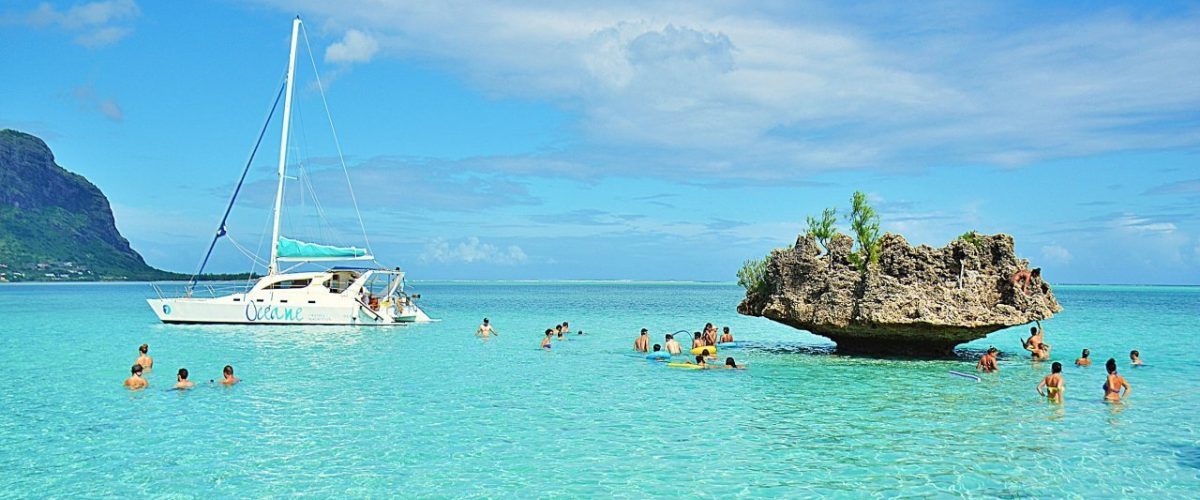When is the Best Time to Go to Mauritius?
What is the optimal time to visit Mauritius?
The optimal period to visit Mauritius is from May to December, when the weather is mild, dry, and sunny. On a Mauritius vacation, you can anticipate experiencing some of the most stunning beaches in Africa, as well as indulging in fresh seafood and enjoying lengthy, sunny days. The island is characterized by a tropical climate that is characterized by year-round warmth. The temperatures fluctuate from scorching to pleasant, even during the winter.
We advise against traveling to Mauritius during the damp cyclone season, which spans from January to March, and to steer clear of the east coast in July and August, when the wind is at its most intense.
Traveling to Mauritius: A Month-by-Month Guide
Traveling to Mauritius in January, February, and March
In Mauritius, January is one of the warmest and wettest months of the year. The island continues to be a hive of activity due to the excess of holidaymakers from the Christmas season. In January, there is a potential for torrential storms and significant rainfall in the late afternoons.
In February, Mauritius experiences sweltering, humid, and rainy conditions, similar to those observed in January. Typically, the rain is brief and dissipates within a few hours. The weather in February is not conducive to a beach vacation; however, there are fewer holiday throngs. During this month, there is still a possibility of cyclones.
March is the month of the Holi Festival on the island of Mauritius, which is also referred to as the “Festival of Colors.” This annual event is dedicated to the Hindu deity Lord Krishna. During the festivities, attendees line the streets and cover themselves with vibrantly-colored powder, creating a jovial atmosphere. March is characterized by a high level of humidity, albeit with a lower precipitation than January and February.
Traveling to Mauritius in April, May, June, and July
April is characterized by high temperatures and high humidity. Despite the fact that the island is typically livelier during the Easter holidays, this is an excellent time to visit for sun seekers. If you tend to favor beaches that are less crowded, it is advisable to schedule your trip outside of this time frame. The commencement of April signifies the commencement of the most ideal season for surfing and snorkeling in crystal-clear waters.
The commencement of winter is officially marked by May; however, it is significantly distinct from the winters we are familiar with. The humidity has decreased, and the temperatures remain within the comfortable mid-range. May is a popular month due to the availability of very affordable travel specials for Mauritius accommodations. It is advisable to bring a slightly warmer outfit for the evenings, as temperatures tend to drop after sunset.
The weather in Mauritius begins to drop in June. You may discover that June is significantly colder than the humid weather at the start of the year if you are a fan of hot weather. Similar to May, the evenings may become slightly chillier as the strong trade winds intensify. If you are an enthusiastic kitesurfer, this month is an ideal time to visit.
In Mauritius, July is also regarded as one of the milder months. Mauritius’s northern region is the optimal destination for those seeking optimal weather conditions during this period. In spite of the reduced temperatures, this period remains a popular one, as it coincides with school holidays in the Northern hemisphere.
Visiting Mauritius from August to October
In Mauritius, August is characterized by milder temperatures and a lack of precipitation, making it an ideal month for enjoying sunny days without the oppressive humidity. It is advisable to remain on the west or north coast during August, as the beaches are more protected from the weather. The Ganesh Chaturthi Festival, which is celebrated on the island in August, is a time of celebration in honor of the God Ganesh. During these festivities, Mauritius is replete with statues of the Elephant God.
Mauritius’ prime season commences unofficially in September. The summer months and extended days of sunshine are welcomed as the strong trade winds subside and the temperatures rise. Nevertheless, it continues to provide tranquil beaches, affordable airfare, thrilling Mauritius excursions, and lodging discounts.
The sun-drenched island of Mauritius experiences its driest month on record in October. The most frequently visited destinations on the island are typically quite active during this period. The Hindu festival of Diwali (The Festival of Lights) is celebrated in October in Mauritius, which has a substantial Indian population. During this festive period, the island is illuminated by candles and lamps, creating a soft radiance.
Traveling to Mauritius in November and December
The humidity and temperatures experience a substantial increase in November. Although there are more hours of sunshine, rainfall is beginning to rise. November provides exceptional scuba diving conditions, particularly for those interested in observing seasonal turtles. The Hawksbill turtle and the Green turtle are two species that are frequently observed.
Mauritius is no exception to the global trend of an active final month of the year. Over December, the humidity levels rise, and heavy showers are a frequent occurrence, typically occurring later in the day. The month is ideal for water activities, including scuba diving, windsurfing, and kayaking, due to the significantly warmer sea temperature. It is advisable to make arrangements for a seashore vacation in December in advance.

